Mahabharata: The Ancient Game of Thrones
Remember those Sunday mornings when our 11 AM slot used to be booked for DD National to listen to that baritone voice of Mr Harish Bhimani narrating “Main Samay Hu”.
Yes, you got it right! I am talking about the greatest TV series of all time, Mahabharata.
Mahabharata, the most epic mythology was the ancient Game of Thrones (GOT) for 90s kids. It was probably the best epic of ancient India. In the late 80s and early 90s, Producer B.R Chopra with his son Director Ravi Chopra portrayed Mahabharata on the small screen and immortalised the same in the heart of all the mythological lovers. People aged from seven to over hundred watched the series with equal curiosity and enjoyed it to the fullest. However, I bet, no kid from 90s would have ever thought that this epic TV series of their time could teach them so many lessons that would help them succeed in life. Now, you must be thinking how Mahabharata, the great war of ancient times could help us achieve our goals, right?
So, let me explain it to you!
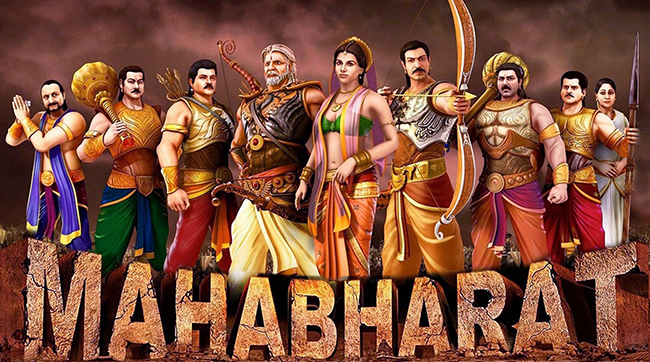
Have you ever wondered that how only five Pandavas managed to register a win against the hundred Kauravas? How Kauravas with “11 Akshouhini Sena” still got defeated at the battle of Kurukshetra against the Pandavas who were leading with only “7 Akshouhini Sena”? I’d like to let you know that “1 Akshouhini Sena” contains with 21, 870 Chariots, 21, 870 Elephants, 65, 610 Horses and 109, 350 Infantry Soldiers. The ratio of Akshouhini Sena is 1 chariot: 1 elephant: 3 cavalry: 5 infantry soldiers.
Besides this giant army, the Kauravas also had some of the most lethal warriors including Bheeshma, who was blessed with wish-long life, Dronacharya, who was not only the paramount preceptor of archery but also an instinctive archer, Karna, who was considered as the greatest archer of the era, Shalya, Kripacharya, Ashwathama and Duryodhana himself to count a few. Even after having a number of fatal soldiers, Kauravas could not succeed on the battlefield.
Doesn’t that ever put you in dilemma? Now, you must be thinking that there was Lord Krishna, the 8th incarnation of Lord Vishnu himself, who was leading the Pandavas squad. Yes, that is true! However, this is not the only reason behind the triumph of Pandavas. Lord Krishna did not even use his weapons and had served just as a charioteer of Arjuna during the entire war. So, how did the Pandavas still managed to prevail against Kauravas? Well, don’t you think there must be a well-planned strategy required to conquer the Kauravas? Surely, there was a proper plan trailed by the Pandavas. In this article, we will discuss such planning and plotting basis that the Pandavas vanquished the mighty force of Kauravas.
Preparation
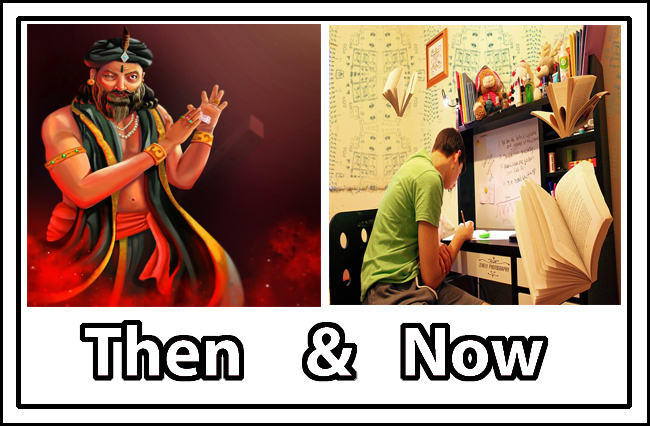
The preparation was, is and will always be the first and foremost step towards achieving a goal. As Pandavas started preparing for the Kurukshetra war during their 13 years of exile and met with so many preceptors and saints who shared their intelligence and wisdom with them. Whilst serving exile, Arjuna acquired his most destructive weapon called Pashupatastra and Bheema learned the lesson of pace and sharpness and enhanced his strength, Yudhishthira learned the game of dice and became undefeatable in the dice game. You too have to start preparation right at the earnest. This will help you plan, strategize, collect the necessary resources and finally achieve your goal.
Leadership

Just as Steve Waugh and Ricky Ponting had directed the Australian Cricket Team, who dominated the world cricket for nearly two decades, in Mahabharata too, the Pandavas had the best leader viz. Lord Krishna. Lord Krishna strategized the victory by distributing the leadership among Drupad, Virat, Shikhandini, Sahadeva, Dhrashtaketu and Satyaki under the supervision of Dhrshtadumna who was the commander-in-chief. As a manager, it is essential to have leadership quality to be competitive in the diehard competition and rule the corporate world.
Commitment
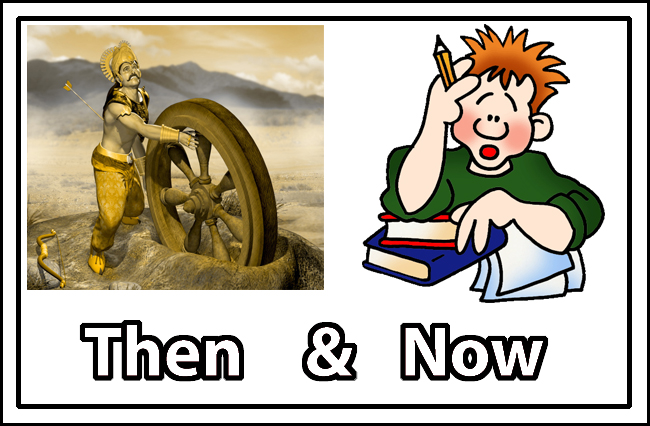
When it comes to commitment, there cannot be a better example than Karna. Karna was the elder son of Kunti and was renowned as “Sootputra” (son of a charioteer) later on. When the world denied instructing him archery, he did not give up his passion and approached to Lord Parashurama for the same. Just like the Lannisters, he paid his debts to his friend Duryodhana and reluctantly agreed to join the squad of Kauravas. The commitment of Karna inspires us to be dedicated towards the goals we would want to accomplish and endure the hustle and bustle of these metro cities.
Individual Targets
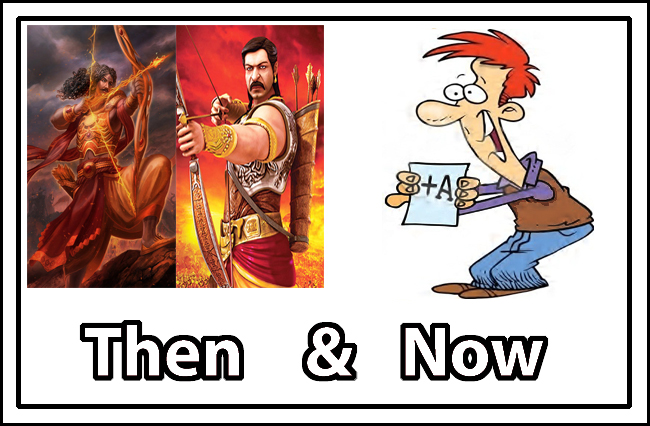
Don’t you think the Kauravas had to be more focused about vanquishing the war as the Pandavas were? I wonder if you would have noticed that in the Pandavas squad, everybody was given a task to focus upon. Bhima was assigned to kill Duryodhana along with his 99 brothers while Arjuna had to fight against Karna. Dhrishtadyumna was born to kill Drona, Shikhandi reincarnated to strike down Bhishma and Sehdeva & Nakula consigned to kill Shakuni and his sons and Karna’s son respectively. Having an individual target is the key to accomplishing yours and your company’s objective, which, in my views, is one of the essential traits to embrace the corporate culture.
Team Spirit
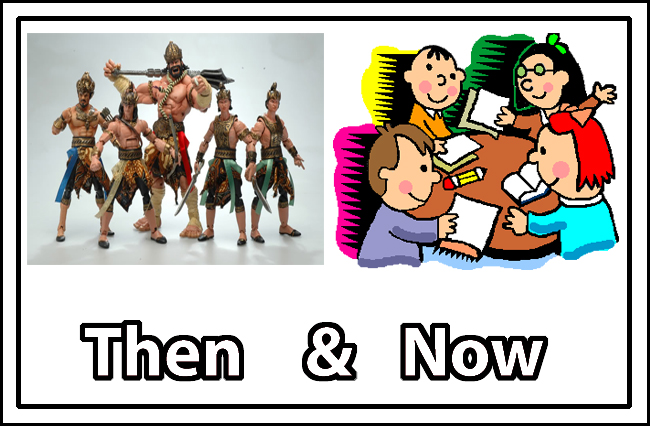
Another reason for the failure of Kauravas was the scarcity of team spirit. All the Kauravas were bounded by their personal vows and pledges. Bhishma swore to protect the throne of Hastinapur, Karna fought for his rivalry against Arjuna and Duryodhana evoked Kurukshetra’s battle due to his gluttony for power and authority.
In the corporate world too, teamwork is the key that unlocks many locks and makes common people achieve uncommon results.
Know the Potential
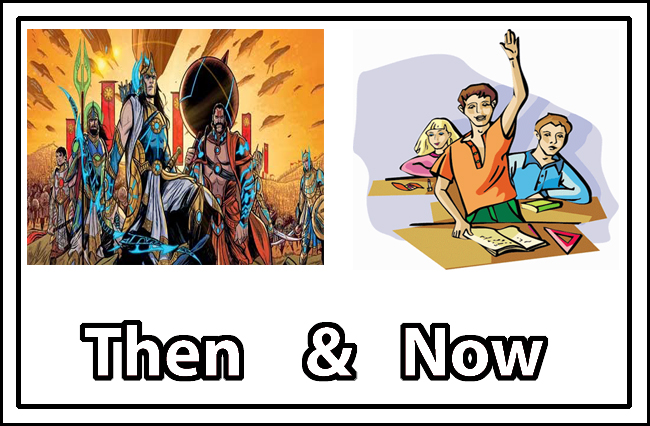
Knowing the potentials of your teammates is the key to achieving your target. In Mahabharata too, Duryodhana was well aware of Karna’s potentials and he did not give it a second thought about picking him up to his squad against the Pandavas. And, needless to say, that having Karna in Kauravas’ squad was the main reason of why Duryodhana was so confident about the victory against the Pandavas. A great manager is the one who knows the potentials of his/her teammates and leads them under the one roof.
Enthusiasm
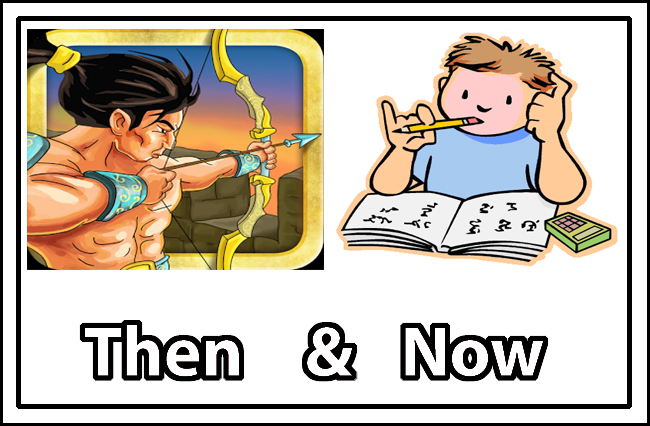
Since not all the four main pillars of Kauravas squad wanted the war, there was a lack of enthusiasm among the Kauravas. Bhishma did not want to kill any Pandavas as they all were his grandchildren, Karna promised not to kill any other Pandavas, but Arjuna, Drona vowed not to strike down any of his pupils, but arrest them. Pandavas, on the other hand, were keen to take the revenge of the insolence against Draupadi. Likewise, enthusiasm in a team or within an individual is essential to hit the jackpot.
Hence, it is quite evident here that Mahabharata can teach us so many managerial traits that we can implement in our day-to-day as well as professional life. I am sure that most of you guys were well aware of these facts and information, but did not observe it intensively.


Amazing 🙂
LikeLiked by 1 person
Thank you @Dhanshi Sharma
LikeLike
Fortunately, it is my most favourite epic ever, as before now i have read dis in dis latest aspect n i rejoiced it alot..,thumbs-up for motivating us in such a new way👍👍
LikeLike
Thank you Upasana. I hope you’d like my further posts too. 🙂
LikeLike
Fortunately, it is my most favourite epic ever, now i have read dis in dis latest aspect n i rejoiced it alot..,thumbs-up for motivating us in such a new way👍👍
LikeLike